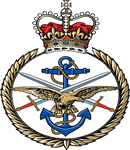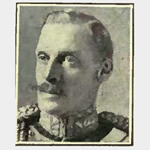Commemorated: | |||
| 1. Memorial: | East Peckham (St. Michael) Churchyard | North-East corner, old ground. | |
| 2. Website: | Household Brigade Lodge No. 2614. | ||
| 3. Book: | The (1921) Masonic Roll of Honour 1914-1918 | Pg.119 | |
| 4. Memorial: | The (1940) Scroll - WW1 Roll of Honour | 42A GQS | |
Awards & Titles: | Member of the Victorian Order | ||
Family :
Son of Maj. E. A. Cook (11th Hussars), of Roydon Hall, Tonbridge.Education & Career :
Professional Soldier
Major (1906)
Service Life:
Campaigns:
- The First World War 1914-1918, World-wide.
| Unit / Ship / Est.: 1st Life Guards |
1st Life Guards Up to August 1914, the Life Guards were stationed at barracks in Hyde Park, handily placed for the many royal guard and ceremonial duties that they were called upon to perform in London. However, despite the finery, this prestigious regiment ? formed in 1788 as the principal mounted guard of the monarch ? the Life Guards were always an active service unit whenever required. It was, of course, a regiment of the regular army. Soon after the declaration of war, one of the squadrons was detached to help form the Household Cavalry Composite Regiment, which moved to France with 4th Cavalry Brigade and saw action at Mons and in the subsequent withdrawal to and beyond the Marne, the decisive battle of the Marne, and later at Ypres. The Composite Regiment was broken up on 11 November 1914, and the squadron rejoined the regiment, which was by now itself on the Western Front. The main body crossed to Belgium, landing on 8 October 1914. Other than in the first two weeks when it was used in the traditional cavalry, for mobile reconnaissance, it fought most of the war as a dismounted force. The regiment was heavily involved at the First Battle of Ypres (October ? November 1914); Second Ypres (April-May 1915); Loos (September-October 1915) and Arras (April 1917). At other times, it took its turn in holding various sections of the front line trenches, and at other times prepared to exploit breakthroughs in battle, but opportunities rarely presented themselves. On 10 March 1918, it was detached from 7th Cavalry Brigade, with which it had served from August 1914. It was formally dismounted, and converted into the No 1 (1st Life Guards) Battalion of the Guards Machine Gun Regiment. It was while this unit was being trained at the great base camp at Etaples that it was hit by an enemy air raid ? a very frequent occurrence in the densely populated coastal area behind the front ? on 19 May 1918. The raid lasted from 10.30pm to 1am on 20 May. Shortly before midnight, two bombs fell on the Life Guards camp. No fewer than 42 men were killed, and 83 wounded, in this incident. |
| Action : No Data |
No Data has been recorded for the final action, because none has yet been found. If you have any information to offer, please contact the Project Team so we can add.
Detail :
LIEUTENANT-COLONEL EDWIN BERKELEY COOK, M. V. O., COMMANDING 1st LIFE GUARDS, who died on the 4th November 1914, at Sussex House, Regent's Park, from wounds received in action near Messines, Belgium on 21st October, 1914, was the elder son of the late Major Edwin Adolphus Cook, 11th Hussars, of Roydon Hall, Tonbridge, Kent, and was born on 4th May, 1869 in London. Lieutenant-Colonel Cook, who was educated at Eton, was gazetted to the 1st Life Guards from the Militia 1890, becoming Captain in 1894, Major in 1903, and Brevet Lieutenant-Colonel in January, 1909. He served as A.D.C. and Acting Military Secretary to General Sir G. Luck in India from 189S to 1903, and succeeded to the command of his regiment in November, 1910. Lieutenant-Colonel Cook, who was a member of the Bachelors' and Arthur's Clubs, was unmarried.
Masonic :
| Type | Lodge Name and No. | Province/District : |
|---|---|---|
| Mother : | Household Brigade No. 2614 E.C. | London |
Initiated | Passed | Raised |
26th February 1906 | 30th April 1906 | 26th June 1906 |
Senior Warden
Source :
The project globally acknowledges the following as sources of information for research across the whole database:
- The Commonwealth War Graves Commission
- The (UK) National Archives
- Ancestry.co.uk - Genealogy, Family Trees & Family History online
- ugle.org.uk - The records of the United Grand Lodge of England including the Library and Museum of Freemasonry
Additional Source:
- Founder Researchers : Paul Masters & Mike McCarthy
- Researcher : Bruce Littley

